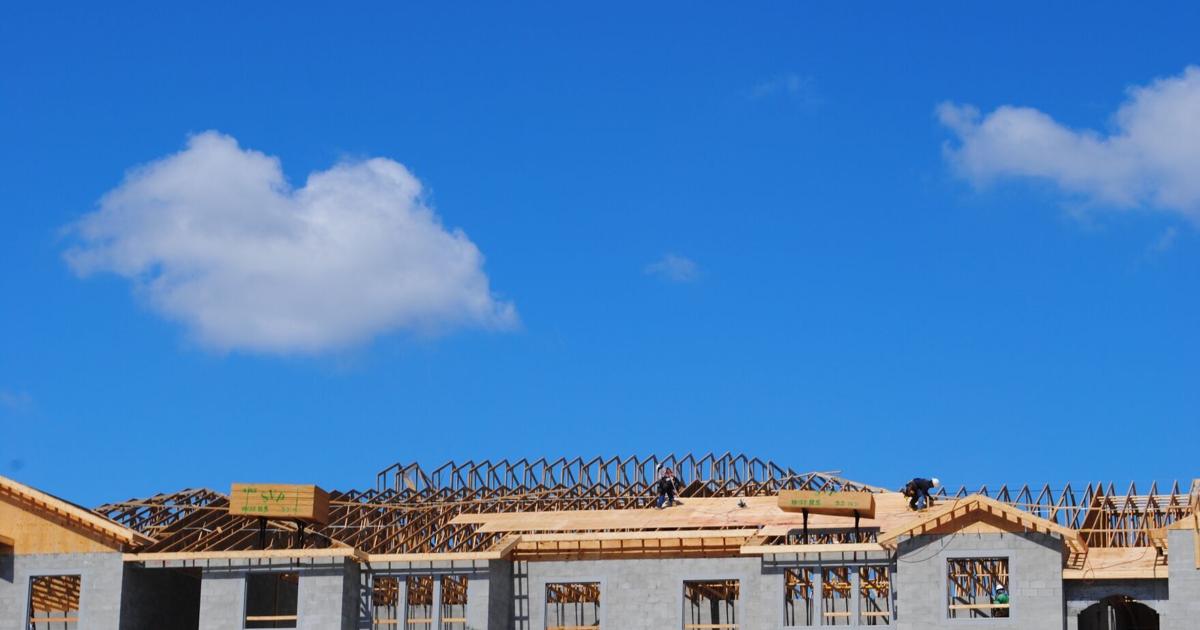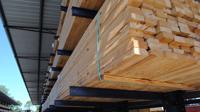The Southwest Florida building industry is navigating the federal government’s shifting tariffs on construction materials and a softening residential housing market.
New federal tariffs began Oct. 14 that in effect raise the cost of imported Canadian lumber from 10% to 45%, the National Association of Home Builders reports.
Canada is a major supplier of lumber used to build, remodel and repair homes in Florida and across the U.S. Industry professionals expect some of the rising costs to fall on homebuyers.
“I’m sure, yes, it will have an impact on [housing] affordability,” said Phillip Ford, executive vice president of the Lee Building Industry Association in Fort Myers. “It’s a bad time to have to deal with that because we’re already seeing a slowdown in the market.”
Southwest Florida builders are also feeling the effects of tariffs imposed earlier this year, as new ones take effect. On Oct. 14, a White House executive order added a 25% tariff on imported kitchen cabinets, vanities and wooden furniture, and a 10% tariff on softwood timber and lumber.
In addition to President Donald Trump’s global reciprocal tariffs, the U.S. Department of Commerce in September increased duties on Canadian lumber from 14.5% to 35%.
Steel, aluminum, electrical components, plumbing and lighting fixtures, stone, copper, glass and mirrors, HVAC units and home appliances have all been subject to new fees since Trump announced the start of reciprocal tariffs in April, according to St. Pete Beach-based Estimate Florida Consulting.
An EFC study found that tariffs could raise home remodeling costs, such as kitchen and bathroom makeovers and roof replacements, by 10% to 15%.
But Southwest Florida custom homebuilders, remodelers and construction management companies report widely varying impacts from tariffs, from negligible to severe. Homebuilders are absorbing some of the rising expenses and taking other measures to avoid passing the full cost to their clients.
“They’re looking at their profit margins and saying, ‘How much can we absorb?’” said Richard Durling, owner of Fort Myers-based custom homebuilder Marvin Development Corp.
Custom Builders U.S.A., a group purchasing organization, unites residential construction companies to boost their buying power. The partnership helps Southwest Florida luxury homebuilder Aubuchon Homes keep costs down.
“We’re all small but together we’re mighty,” said Justin Einstein, Aubuchon’s vice president of operations.
The company monitors tariffs closely, strategically buying materials and sometimes stockpiling them. Aubuchon and other builders are being “uber competitive” on keeping costs down for customers, Einstein said.
Lumber supplies at a Southwest Florida distributor. Builders say new federal tariffs are driving up costs on imported materials.
Evan Williams
“But at some point, there’s a breaking point,” he adds.
The tariffs led some businesses to buy more American products. Durling of Marvin Homes said that a cabinet company he works with is shifting gears to source products from America.
“A lot of people who are in the industry are going to look at sourcing locally or in the country versus purchasing things overseas,” he said.
But if more companies source U.S. products, he adds, the demand may push prices up here too. American lumber mills may also strain to keep up with demand.
“The mills domestically do not have the capacity to keep up with demand,” Einstein said.
The NAHB found that the U.S. imports about one-third of its lumber because domestic production cannot meet demand, and it would take years to increase output.
The White House said in a press release that the U.S. has “ample timber resources,” with enough production capacity to supply 95% of the nation’s softwood needs as of 2024.
Tariffs on lumber and other materials have rocked building industry suppliers throughout the state, said Kristina Berano, executive director of the Florida Building Material Association. She reports that a growing number of suppliers have a backlog of materials as builders delay new projects amidst uncertainty.
“Now all the builders are holding off,” she said. “A lot of people don’t know in our industry if they’re going to have a job to go to tomorrow.”
The Cape Coral-based tile, stone and accessory supplier, PCC Tile, has scrambled to keep up with shifting global tariffs since talks began in April, owner Eric Glocer said.
With some of his clients making selections for their projects as much as a year in advance, uncertainty surrounding the cost of materials can leave him guessing what to buy and when.
“Overall, it makes it more costly to run a business if you have that much uncertainty,” he said.
Tariffs have little or no impact for Matthew Sinclair, president and owner of luxury builder Sinclair Custom Homes and Sinclair Cabinetry. Sinclair buys lumber in bulk from the U.S. and Vietnam.
They have had only a negligible impact for Stevens Construction, a construction management firm for commercial and health care projects, and other similar firms, said Dan Adams, executive vice president and partner. “Some materials have increased in price and others decreased but not due to tariffs, just the ebbs and flows of the industry in general,” he said.


